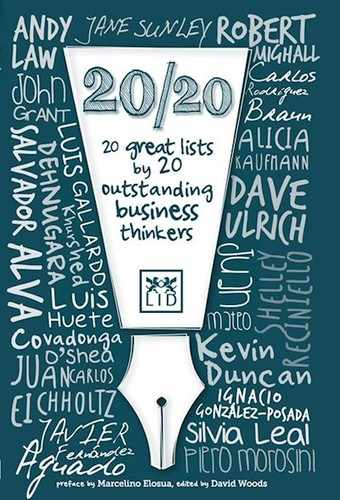4.
PRETENDING TO KNOW
Pretending to know is common, no matter what our role or level. This is because it feels as though faking knowledge or knowing is better than disappointing people: it’s better than looking incompetent or losing people’s trust, as Nash Kay37 found out when he was a junior sales executive on rotation in the commercial department of a television studio in Lebanon. He had yet to prove himself and had a poor relationship with his manager.
At 60, Peter, Nash’s boss, had taken the department to a whole new level by regularly securing multimillion deals, acquiring more credibility and power along the way. His was a brash character: while he was extremely secretive and ensured everyone was kept on a need-to-know basis, he also despised incompetence and people who did not have answers. Yet he, himself, rarely gave any answers.
One day, Peter stormed into Nash’s office: “I need a competent person now – someone with stellar analytical skills, sharp business acumen and the mindset of a consultant. Do you have that?”
Nash’s heart was pounding and his right eye started to twitch. He had none of the requirements Peter had listed: he didn’t have analytical skills or any experience in consulting.
“Did you hear what I said?” repeated Peter. Nash tried to remain as composed as possible and against his better judgement said “Yes, I have all that.”
Peter promptly responded: “Great. We meet at 2pm in the conference room” and ran out of the room.
“It is true; I lied,” reflects Nash. “Not only that, I had also implicated myself in something I had no information about, undermined my own manager and potentially compromised my department. Why? Was I intimidated by the presence of such an impressive character and senior manager? Was I attempting to preserve my job? After all, I felt that rejecting the request of someone like Peter was nothing less than professional suicide, especially in our business. Or was I gambling by attempting to grasp onto what I perceived to be an exciting venture that could move me up the ladder faster? Perhaps it was a little of everything.”
As a consequence of lying to Peter about his abilities Nash was in turmoil. For weeks he worked like a slave, reading up on finance, break-even analysis and a range of business concepts that were new to him. He tried to keep up in the meetings, but so much was a mystery to him. He was sure Peter was looking at him disapprovingly. On top of this, he was managing to sleep for only three hours a night and came to feel that he wanted to resign – just to avoid the pressure. However, three months later he had managed to prove himself and deliver the high performance expected of him, but at a considerable cost to his own physical and mental health.
When we are faced with a dilemma, a difficult problem to solve, or a new situation we’ve never encountered before, we generally believe that we have limited options and tend to paper over the gaps in our knowledge. We either pretend to the world that we have the knowledge and expertise, or we cling to our existing knowledge. Although pretending to know can stretch us into new territory, as in Nash’s case, it is just as likely to get us into trouble when the gaps become obvious.
